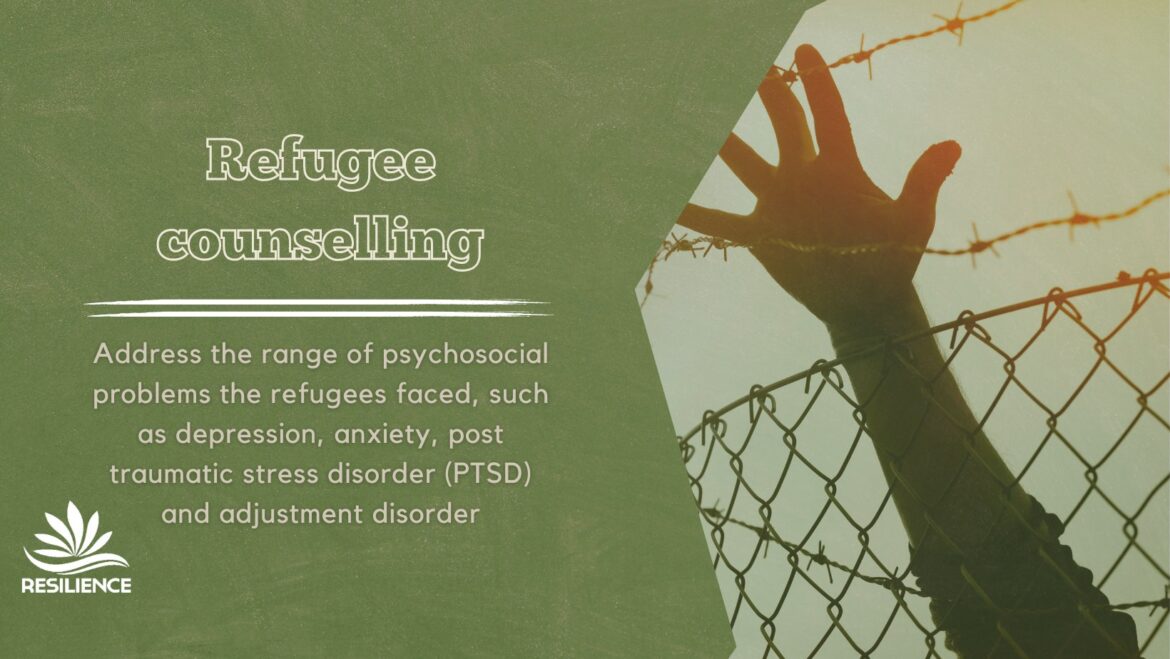
Refugee post-migration including discrimination, language barriers, difficulty obtaining legal status or employment, separation from family members, and disruption of cultural ties are components of the battles that refugees and immigrants face in their new country. Further, they may also encounter other problems such as xenophobia, stigmatization, poverty, lack of access to healthcare services, and basic needs. However, a migrant’s or refugee’s journey is often long and arduous, and it involves several stages. During the transit and travel phases of migration, individuals deal with a multitude of difficulties that can bring long-lasting effects on their physical and mental health. Such difficulties include a lack of access to resources and information, financial constraints, exposure to abuse and exploitation, physical fatigue, and mental exhaustion.
Nowadays, the gravity of mental health issues confronted by migrants and refugees is getting tougher. It is imperative to note that there is an urgent need for access to therapeutic interventions such as counselling, strengthening support systems, and trauma-informed therapies. These therapeutic interventions can help migrants and refugees process the traumatic experiences they have met throughout their journey while helping them build resilience and adapt to a new environment. Equipping proper education about the social and cultural standards of the destination country can be beneficial in helping migrants and refugees to better understand and appreciate the new surroundings they live in.
Identified signs that refugees need counselling:
- social withdrawal and isolation
- lost the sense of interest and pleasure
- overthinking and fears about the future
- the feeling of emotional instability
- nightmares and sleep disturbances
- recurring memories of previous traumatizing experiences
- feeling agitated and hypervigilant most of the time, and
- a lack of concentration and a sense of distractions
To better address the identified issues of refugees and migrants, effective counselling takes a vital role to help lessen the burden shoulder by these vulnerable groups. It is also important to create interventions, programs, and activities related to these issues. Hence, art therapy is an example of a therapeutic intervention that has been shown to help address the mental health needs of migrants and refugees. It can be used to provide a non-verbal expression, assisting refugees and migrants express feelings through body movements, gestures, and facial expressions because they may have lost the opportunity to verbalize. Particularly, art therapy can be helpful for those with traumatic experiences, allowing them to process emotions related to their experiences and helping them to gain a greater understanding of their new culture and environment.
Research shows that refugee counselling takes a lead to address the range of psychosocial problems the refugees have faced, such as depression, anxiety, post-traumatic stress disorder (PTSD), and adjustment disorder.
In addition, art therapy can provide a sense of safety and security for refugees by giving them the chance to explore their emotions in a non-threatening environment. As an effective intervention, art therapy can be considered a powerful tool for helping refugees and migrants adjust to their new habitat. Research shows that refugee counselling takes a lead to address the range of psychosocial problems the refugees have faced, such as depression, anxiety, post-traumatic stress disorder (PTSD), and adjustment disorder. Therefore, it is best practice if counselling is initiated very soon after the refugees arrive in the destination country.
